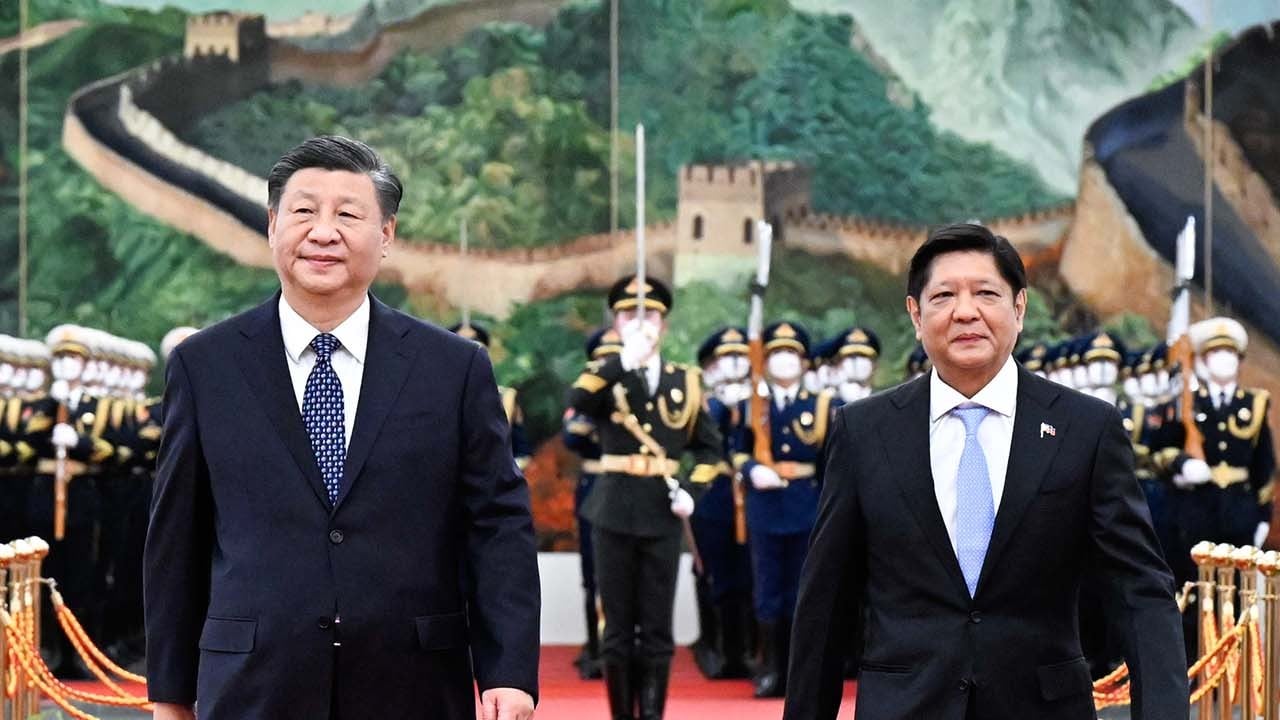
US military presence risks conflict in South China Sea, Boao Forum hears
- ‘Smell of gunpowder getting stronger’ as deployments by American forces in the region set historical record
- Former Philippine president Gloria Macapagal Arroyo warns war could erupt if ‘zero-sum game mentality’ keeps up
“The smell of gunpowder in the South China Sea is getting stronger,” said Wu Shicun, founding president of the National Institute for South China Sea Studies, during a panel discussion on Thursday.
Wu said Washington and its allies had a clear intention of countering Beijing. He warned that coastal countries of the South China Sea should “think twice” about providing military bases to countries outside the region.
They should also “be cautious” about military exercises conducted by the US and its allies in the region, he said.
There were about 1,000 sorties by large US reconnaissance aircraft in the South China Sea region last year, according to a report by the South China Sea Strategic Situation Probing Initiative.
The think tank also tracked eight entries by US aircraft carrier strike groups and amphibious alert groups in 2022, and at least 12 by nuclear-powered attack submarines.
Last month, Washington and Manila announced a deal to give US troops access to another four bases in the Philippines.
And Australia is hoping to acquire three – possibly five – nuclear-powered submarines by the early 2030s under the US-led Aukus pact, which aims to counter China in the Asia-Pacific region.
Beijing’s claim to much of the South China Sea was dismissed in 2016 by an international tribunal. The landmark ruling in the case – brought by the Philippines –was rejected by the Chinese leadership but endorsed by the US.
During Thursday’s panel discussions, former Philippine president Gloria Macapagal Arroyo said the ruling was an important contribution by the Philippines to regional and global rule-based order, but added that her country has faced difficulties in setting policies against a background of China-US rivalry.
Drawing on the historical lessons of the 1962 Cuban missile crisis, Arroyo said a solution could be found, but also warned that war could erupt if the involved parties kept a zero-sum game mentality.
David Lampton, professor emeritus and director of China studies at Johns Hopkins University, said the situation in the contentious waterway had become more difficult to manage.
The increasing military resources and equipment deployed in the region by both China and the US could lead to accidents, he said.
There were at least two encounters towards the end of last year. In December, the US military said one of its planes was forced to take “evasive manoeuvres” to avoid collision when a Chinese fighter jet flew within metres of the aircraft in the South China Sea.
In another incident a month earlier, China said it had warned off a US warship that entered the waterway near the Spratly Islands.
Chinese officials on the panel accused the US of destabilising the security of the South China Sea and called on countries in the region to cooperate and reject external involvement.
Tan Qingsheng, from the Chinese foreign ministry’s ocean affairs department, said “some major countries outside the region continue to increase military deployments in the region, deliberately expanding conflicts, and trying to mess up the South China Sea”.
In a speech delivered on behalf of assistant minister Nong Rong, Tan also called on regional countries to enhance their mutual trust and speed up negotiations for a code of conduct in the South China Sea.
Liu Zhenmin, former UN undersecretary general, said China and the member nations of the Association of Southeast Asian Nations should “have a sense of urgency” about completing consultation on the code of conduct as soon as possible.
Liu said the biggest challenge to the consultations was the US and other external forces trying to intervene in South China Sea affairs.
“Asean countries and China should actively work hard to grasp the initiative in the South China Sea issue,” he said.
Additional reporting by Mia Nulimaimaiti


